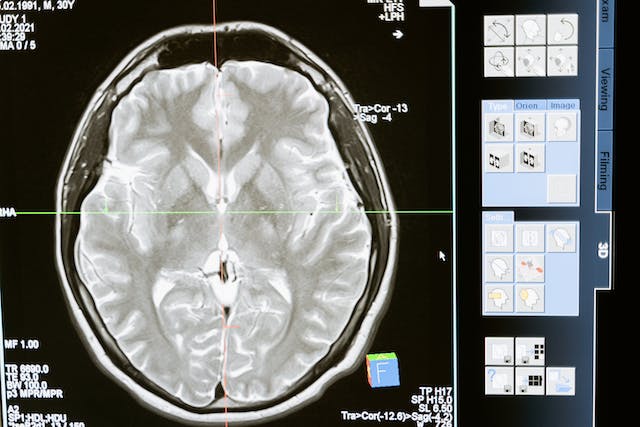
1. Introduction
A research takes a lot of efforts and time whether it belongs to wet lab, in-silico or computation analysis of obtained results and If you are a PhD student who is writing research articles to get your findings published in reputed journals then you should give attention while preparing you manuscript. You might have wondered:
- What are keywords
- Why journals asks to use keywords
- What keyword should I mention in my manuscript
- How would I know which keywords are perfect for my manuscript
- Is there any use of keywords
- How to choose keywords
- How to use keywords effectively
Let’s answer all these questions.
1.1 What are keywords
Keywords are words or phrases that capture the essence of your research paper and make it searchable and discoverable by search engines and readers. Good manuscripts always use them properly. They are important for increasing the visibility and impact of your research articles, as they help you reach a wider and relevant audience, and showcase your contribution to your field.
1.2 Why journals asks to use keywords
Every journal whether small or well known want to use search engines to show up their published content on the internet. This visibility of the research increases the chances of the research being published getting more attention. Keywords help these articles to stay focus on the topic. Journals use these keywords to rank them on search engines. I someone has properly used the keyword than there is a greater chance that research will appear on top of the search results thus more readers will read the article and will cite them.
1.3 What keyword should I mention in my manuscript
Keywords are not any random word that you like or you think your research is related to. These terms should be evenly used throughout used with consistency in your whole article. Assume keywords like research topics. If suppose you are targeting Alzheimer’s disease then you keywords for example would be:
- Alzheimer’s disease
- AD
- Alzheimer
- neurodegenerative diseases
- Amyloid plaques
- Tau
- TDP-43

Alzheimer’s Disease Demo Illustration
This also means that you will be covering these topics in your article and these terms or their related ones would appear frequently in your article. This way your cover the whole topic of Alzheimer’s disease in depth.
1.4 How would I know which keywords are perfect for my manuscript
Research well about your field of research and read other’s work. Search about what terms people look when they try to find you topic. Most appeared searched terms should be your keyword. Aim for those which appears in top list but at the same time is less explored. This way you will not fall in the competition with others.
1.5 Is there any use of keywords
It provides your research a guidance and help your article getting discovered to the whole and not only to the experts. More readers means more attention towards your research.
1.6 How to choose keywords
Research about your content and topic of study. Do some keyword research and then find appropriate keyword to take the benefit and gain reputation.
1.7 How to use keywords effectively
In this blog post, Editficient will guide you through the process of choosing and using keywords for your research paper. Editficient will explain what are they, why they are important, how to select them, and how to use them in your paper. Editficient will also provide some examples for different topics and disciplines. By the end of this blog post, you will be able to create and use keywords effectively for your research paper.
2. How to choose the best keywords for your research paper?
Choosing the right keywords for your paper is not an easy task. You have to consider various factors, such as:
- The guidelines of your target journal,
- The terms related to your topic,
- The terms that summarize your work as a whole,
- The techniques or methodology you used, and
- The balance between generic and specific terms.
You also have to test your keywords to see how they rank on search engines and how they match with similar papers in your field. Here are some tips and steps for selecting the best keywords for your paper:
2.1 Follow the guidelines of your target journal
Some journals have specific requirements for the number, type, and format of keywords. For example, some journals may limit the number of keywords to 3-6, some may ask you to use only nouns, and some may require you to use a specific style, such as lowercase, separated by commas, etc. You should check the instructions for authors of your target journal and follow them carefully .
2.2 Identify terms related to your topic
Think of the words or phrases that describe the main concepts, issues, or questions of your research. You can use various sources to find these terms, such as your title, abstract, introduction, literature review, research questions, etc. You can also use dictionaries, thesauruses, and corpora to find synonyms, antonyms, and related terms .
Identify terms that summarize your work as a whole. Think of the words or phrases that capture the main contribution, findings, or implications of your research. You can use various sources to find these terms, such as your abstract, conclusion, discussion, etc. You can also use keywords from previous papers that are similar or relevant to your research .
2.3 Include your techniques or methodology
Think of the words or phrases that describe the methods, tools, or approaches you used in your research. You can use various sources to find these terms, such as your methods, results, tables, figures, etc. You can also use keywords from previous papers that used the same or similar techniques or methodology .
2.4 Include both generic and specific terms
Think of the words or phrases that are broad enough to cover the general scope of your research, but also narrow enough to highlight the specific aspects of your research. You can use a combination of general and specific terms to create a balance between the breadth and depth of your keywords . For example, if your paper is about the effects of social media on mental health, you can use generic terms such as social media, mental health, etc., and specific terms such as Facebook, depression, etc.
2.5 Perform a search to test your keywords
Use your keywords to search for similar papers in your field and see how they rank on search engines. You can also use tools such as Google Scholar, Scopus, Web of Science, etc., to find the most cited and relevant papers for your keywords. You can modify your them if needed to improve their relevance and effectiveness .
3. Examples of keywords for different topics and disciplines
To give you some idea of how to choose keywords for your paper, here are some examples for different topics and disciplines. Note that these are not exhaustive or definitive lists, but rather illustrative examples. You should always tailor your keywords to your specific topic and journal.
3.1 Topic: The effects of social media on mental health
- Discipline: Psychology
- Keywords: social media, mental health, Facebook, depression, anxiety, self-esteem, well-being
3.2 Topic: The impact of climate change on biodiversity
- Discipline: Environmental Science
- Keywords: climate change, biodiversity, species, extinction, adaptation, conservation, ecosystem
3.3 Topic: The role of artificial intelligence in education
- Discipline: Computer Science
- Keywords: artificial intelligence, education, learning, teaching, technology, innovation, evaluation
3.4 Topic: The influence of culture on consumer behavior
- Discipline: Marketing
- Keywords: culture, consumer behavior, values, preferences, attitudes, decision making, cross-cultural

4. How to use keywords effectively in your research paper?
Once you have chosen the best keywords for your paper, you need to use them effectively in your paper. Using keywords properly can help you create a clear and coherent structure for your paper, and enhance its readability and relevance for your readers and search engines. Here are some best practices and strategies for using keywords in your paper:
4.1 Use keywords in the title, abstract, and main text of your paper
The title, abstract, and main text are the most important parts of your paper, as they provide the first impression and the main information for your readers and search engines. You should use your keywords in these parts to convey the main topic and purpose of your paper, and to attract the attention and interest of your audience. You should also use keywords in the introduction and conclusion of your paper, as they provide the background and summary of your paper.
4.2 Use keywords consistently and accurately throughout your paper
- You should use your keywords in a consistent and accurate way throughout your paper, to avoid confusion and ambiguity for your readers and search engines. You should avoid using synonyms, acronyms, or abbreviations that are not explained or defined in your paper, as they may reduce the clarity and effectiveness of your keywords. You should also avoid using keywords that are irrelevant or misleading for your paper, as they may harm your credibility and reputation.
4.3 Use keywords in headings and subheadings to create a clear structure and hierarchy of your paper
You should use keywords in headings and subheadings to organize your ideas and information in a logical and coherent way, and to create a clear structure and hierarchy for your paper. Headings and subheadings can help you divide your paper into sections and subsections, and guide your readers and search engines through your paper. You should use keywords that reflect the main point and content of each section and subsection, and that are consistent with the title and abstract of your paper.
4.4 Use keywords in captions and labels of tables, figures, and graphs to enhance their readability and relevance
You should use keywords in captions and labels of tables, figures, and graphs to describe and explain their content and purpose, and to enhance their readability and relevance for your readers and search engines. Tables, figures, and graphs can help you present and illustrate your data and results, and support your arguments and claims. You should use keywords that are relevant and accurate for your tables, figures, and graphs, and that are consistent with the main text of your paper.
4.5 Use keywords in the metadata and alt text of your paper to improve its accessibility and SEO
You should use keywords in the metadata and alt text of your paper to provide additional information and context for your paper, and to improve its accessibility and SEO for your readers and search engines. Metadata and alt text are hidden elements that are not visible in your paper, but that can be read by search engines and screen readers. You should use keywords that describe the title, author, abstract, and keywords of your paper in the metadata, and that describe the content and function of your tables, figures, and graphs in the alt text.
5. Conclusion
In this blog post, Editficient have discussed the importance and use of keywords in research papers. Editficient have explained what keywords are, why they are important, how to choose them, and how to use them in your paper. Editficient have also provided some examples of keywords for different topics and disciplines. By following these tips and steps, you will be able to create and use keywords effectively for your research paper, and increase its visibility and impact for your readers and search engines.

6. Recommendations for further reading
If you want to learn more about keywords for research articles, or if you want to improve your skills and knowledge on this topic, Editficient have some recommendations and suggestions for you. Here are some links and references to useful resources and tools for keywords for research articles:
6.1 Keywords for Research Article: an Effective Guide
This is a comprehensive guide that covers the definition, importance, selection, and use of keywords for research articles. It also provides some examples and tips for different disciplines and journals.
6.2 How to create keywords for a research paper
This is a practical article that provides some steps and strategies for creating keywords for a research paper. It also provides some dos and don’ts for choosing and using keywords.
6.3 How to Use Keywords in Your Writing
This is an informative article that explains how to use keywords in your writing, especially in the title, abstract, and main text of your paper. It also provides some examples and advice for using keywords effectively.
6.4 Nature SEO: How to write a good scientific abstract for a journal article
This is an article from Nature that guides you on how to write a good scientific abstract for a journal article. It covers the purpose, structure, style, and keywords of an abstract, and provides some dos and don’ts for writing an effective abstract.
6.5 Nature SEO: How to Optimize Your Site for Google’s Featured Snippets
This is an article from Nature, one of the most prestigious scientific journals in the world. It explains how to optimize your site for Google’s featured snippets, which are special boxes that appear at the top of the search results and provide a quick answer to a user’s query.
6.6 How to Use Keywords Effectively in Your Research Paper
This is an insightful article that discusses how to use keywords effectively in your research paper, especially in the metadata and alt text of your paper. It also provides some benefits and challenges of using keywords for SEO and accessibility.

7. Thank you for reading the post
We have reached the end of this blog post on keywords for research articles. Editficient hope you have enjoyed reading it and learned something new and useful from it. Editficient would love to hear from you and learn from your feedback. Please share your thoughts, opinions, experiences, or questions on keywords for research articles with us. You can leave a comment below, or contact us via email, social media, or our website. Thank you for reading and happy writing!
